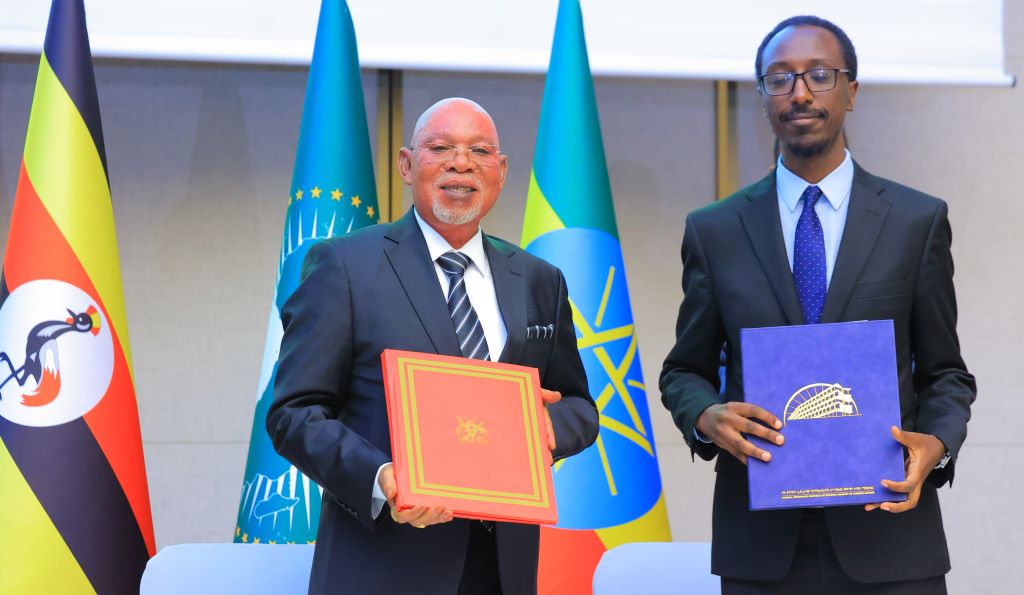
Uganda and Ethiopia strengthen bilateral ties with eight new cooperation agreements. The agreements were signed at the 4th Session of the Ethiopia-Uganda Joint Ministerial Commission in Addis Ababa, Ethiopia.
The Ugandan delegation was led by Foreign Affairs Minister General Abubakhar Jeje Odongo. He was accompanied by ministers from trade, transport, agriculture, and internal affairs.
Their Ethiopian counterparts were led by Foreign Affairs Minister Dr. Gedion Timothewos. The Ethiopian team comprised ministers from trade, regional integration, and other sectoral ministries.
Dr. Timothewos welcomed the Ugandan delegation to Addis Ababa.
He expressed the Ethiopian government’s delight in hosting the joint ministerial commission meeting.
According to Dr. Timothewos, the meeting provided an opportunity to take stock of the bilateral relationship. He emphasized the need to enhance regional cooperation to deal with mounting challenges facing both countries.
Dr. Timothewos recognized the excellent partnership between the two nations. This partnership ensures the equitable and reasonable utilization of the Nile Waters.
The Ethiopian foreign affairs minister also highlighted the importance of collective efforts. He emphasized the need for coordination between Ethiopia and Uganda to counter terrorism in the region.
This would be achieved by working closely with the Intergovernmental Authority on Development.
General Odongo Jeje Abubakhar expressed gratitude to the Ethiopian delegation. He noted that the fourth session of the joint ministerial commission was held. This was at a time when bilateral relations between the two countries had blossomed.
The relations had flourished since they were established many years ago.
Despite a six-year hiatus, the joint ministerial commission’s commitment remained unwavering.
The Ugandan foreign affairs minister emphasized his government’s commitment to relations with Ethiopia.
He described the joint ministerial commission as the latest building block. This would propel bilateral relations to greater heights.
The commission provided an opportunity to explore and agree on many areas of cooperation.
General Odongo Jeje Abubakhar acknowledged the many issues and subjects. These brought both countries together, forming part of the deliberations during the joint ministerial commission session.
These issues included diplomatic consultations, trans-boundary water management, and regional peace and security.
Other areas of discussion were trade, energy, immigration, tourism, agriculture, and transport.
The highlight of the two-day meeting was the signing of eight memoranda of understanding.
These agreements cover bilateral air services, industrial cooperation, cooperation in the energy sector, and water resource management.
Other areas of cooperation include technical cooperation in agriculture, animal industry, and fisheries.
The countries also agreed on cooperation in aviation training and cooperation and assistance in aircraft accident and incident investigation.
A memorandum of understanding on trade cooperation was also signed.
The two ministers expressed their governments’ readiness and commitment. They vowed to implement all agreed positions arising from the fourth session of the joint ministerial commission.





